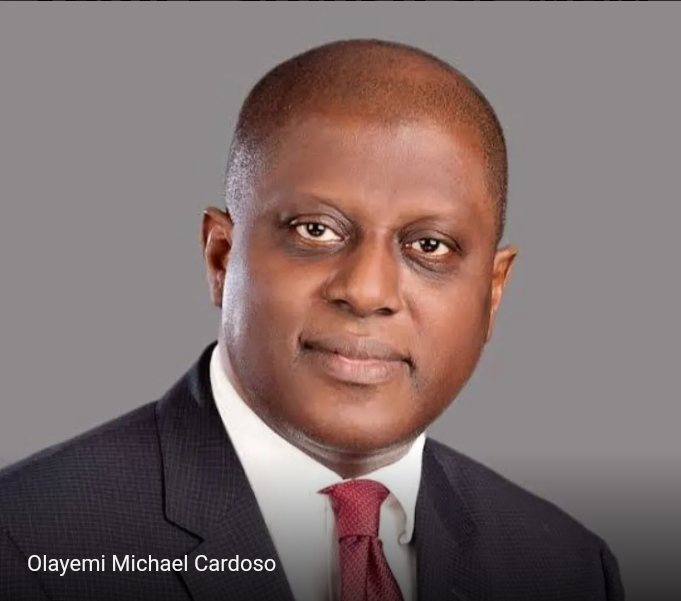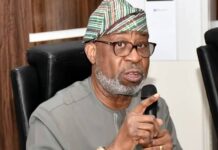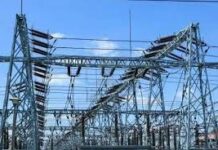
Cardoso’s Shock Therapy: Why Nigeria Needs These Reforms, by Rahma Olamide Oladosu
By any measure, Nigeria’s financial system has been walking a tightrope for years. A mix of weak oversight, economic volatility, and historical lapses in governance has created an environment ripe for instability. But under the steady leadership of Dr. Olayemi Cardoso, the Central Bank of Nigeria (CBN) is finally responding, not with half-measures, but with bold, systemic reforms that promise to stabilise, sanitise, and ultimately strengthen the country’s banking sector. This isn’t business as usual. This is shock therapy that is necessary, timely, and long overdue.
At the heart of these reforms is a clear understanding: no economy can grow sustainably without a strong and trusted financial system. Banks are the arteries through which economic lifeblood flows; facilitating investment, enabling business, and supporting consumers. When that system is weak, everything else suffers. Under Cardoso’s watch, the CBN is showing that it understands this, and more importantly, that it’s ready to act.
One of the flagship policies of the Cardoso led CBN is the mandate for banks to significantly increase their minimum capital base. This move has stirred up plenty of debate. Critics worry that smaller banks will struggle or even fold under the pressure. Some fear a wave of mergers and acquisitions that could reduce competition in the sector. But here’s the truth: capital strength is not negotiable in an economy facing the kind of headwinds Nigeria is dealing with such as rising inflation, currency depreciation, and global financial uncertainty. A well-capitalised bank isn’t just more resilient in a crisis; it’s more capable of supporting the real economy, financing large-scale infrastructure projects, and lending to sectors that drive inclusive growth.
This is not the first time the CBN has pushed for bank recapitalisation. The 2005 banking reforms under Charles Soludo triggered a similar wave of mergers that ultimately created stronger, more competitive institutions. Cardoso’s reforms are part of that legacy which is building a financial system that can actually support national development goals.
Cardoso’s regulatory push doesn’t stop at capital. The CBN is also cracking down on lax lending practices, enforcing stricter prudential guidelines, and demanding more robust risk management systems. For too long, Nigerian banks have been plagued by non-performing loans, reckless credit expansion, and a casual attitude toward compliance. The result? A trail of distressed assets, failed institutions, and a public wary of trusting the system. Under Cardoso, that is changing. The CBN is tightening loan classification rules and provisioning standards, effectively forcing banks to take a more realistic and responsible view of their credit books. These reforms are not punitive but protective. They ensure that banks do not just chase profits but do so in a way that is sustainable and grounded in financial reality.
Read Also:
The digital revolution in Nigeria’s financial sector has been rapid, disruptive, and largely positive. Fintech firms have driven financial inclusion, created jobs, and opened up access to credit for millions. But they have also operated in a regulatory gray zone, sometimes moving faster than the regulators themselves. Cardoso’s CBN is now stepping in to close that gap. By strengthening licensing requirements, enhancing cybersecurity standards, and imposing stricter Know Your Customer (KYC) rules, the CBN is sending a clear message: innovation is welcome, but it must come with responsibility. Consumers deserve protection, digital platforms must be secure, and systemic risks must be managed.
This is not an attempt to stifle fintech growth. In fact, it may be the opposite. A well-regulated digital finance sector will be more trusted, more scalable, and more attractive to investors. The long-term benefit? A truly inclusive financial ecosystem that brings more Nigerians into the formal economy.
One of the most refreshing aspects of Cardoso’s reforms is the renewed focus on the end-user that is the everyday Nigerian. The CBN is not just concerned with systemic risks and capital buffers; it is also taking a hard look at how banks treat their customers. From hidden charges and excessive fees to poor service and limited transparency, the grievances of Nigerian banking customers are well known. Cardoso’s administration is moving to fix that, introducing clearer pricing frameworks, enforcing fair lending practices, and holding financial institutions accountable for customer experience. This consumer-first approach is a game-changer. It’s how trust is rebuilt. And without trust, no financial system can function properly.
There is no denying that these reforms will come with short-term pain. Smaller banks may face existential threats. Operational costs will rise as institutions invest in compliance, risk systems, and capital-raising. Some businesses, especially small and medium-sized enterprises (SMEs), may find credit less accessible in the short run due to stricter lending conditions. But this is the price of progress. The alternative, which is more bank failures, another systemic crisis, deeper investor skepticism, is far more costly. Cardoso’s reforms are about making the system more resilient, not more rigid. If implemented with transparency and supported by complementary fiscal policies, the long-term rewards will far outweigh the initial discomfort.
Perhaps the most difficult part of this regulatory overhaul is finding the right balance. Overregulation could stifle innovation, drive away startups, and make credit too hard to access. Under-regulation, on the other hand, has already proven disastrous in Nigeria’s history. Cardoso’s challenge is to strike that delicate middle ground, one where regulation strengthens the system without choking its growth potential. Early signs suggest he understands this nuance. The tone from the CBN is not authoritarian; it’s constructive. The message is not “comply or die” but rather “adapt and grow.”
In many ways, the Cardoso era at the CBN is shaping up to be one of structural reset. These aren’t cosmetic reforms, they are foundational. They aim to redefine how banks operate, how risk is managed, and how value is created in the financial ecosystem. And Nigeria needs this. Desperately. We cannot build a 21st-century economy on a fragile 20th-century financial structure. We cannot attract meaningful foreign investment if our institutions are shaky. We cannot drive inclusive growth if our banks cannot lend confidently. And we cannot protect consumers without a regulator willing to hold institutions accountable.
Cardoso’s reforms may not be universally popular, but popularity is not the point. Progress is. Stability is. Integrity is. If these reforms are allowed to take root, the long-term payoff could be transformative: a financial system that works for everyone, not just the powerful; one that supports real economic growth, not just speculative profit.
Let the reforms continue. Let the system heal. And let Cardoso lead.














































